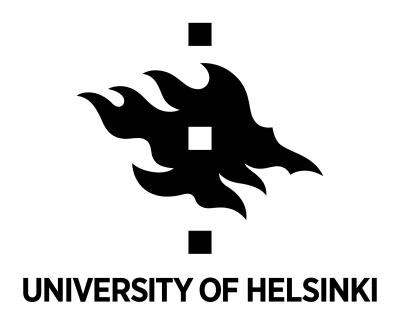
Master in Human Nutrition and Food-Related Behaviour
University of Helsinki

Key Information
Campus location
Helsinki, Finland
Languages
English, Finnish, Swedish
Study format
On-Campus
Duration
2 years
Pace
Full time
Tuition fees
EUR 15,000 / per year *
Application deadline
Request info
Earliest start date
Aug 2024
* for non-EU/EEA students.
Introduction
Why Do We Eat the Way We Do?
What happens to food in our bodies? How does nutrition maintain our health? How do we study the way people use food? How does culture influence our food choices? How is food discussed in the media? How can we change food-related behaviour?
The Master’s Programme in Human Nutrition and Food-Related Behaviour (HNFB) focuses on human nutrition, food-related behaviour and food consumption from the perspectives of public health nutrition, nutrition physiology and the social sciences.
Studying
The Master’s Programme in Human Nutrition and Food-Related Behaviour (HNFB) focuses on human nutrition and food-related behaviour and consumption from the perspectives of public health nutrition, nutritional physiology and the social sciences.
The programme is built around human nutrition, food-related behaviour and consumers, as well as related research methods. Themes based on Sustainable Development Goals - such as good health and well-being, zero hunger, equality, and ecological and cultural sustainability– are embedded throughout the programme.
Students and student life
Student life and especially the student organisation culture is exceptionally rich and diverse in Finland. Also at the University of Helsinki, more than 250 student organisations operate within the Student Union of the University of Helsinki (HYY), ranging from faculty and subject organisations to political and societal organisations, and from choirs and orchestras to sports and game clubs. Their activities include anniversary celebrations, academic dinner parties, cultural events, get-togethers and excursions.
As a student and member of the Student Union (HYY), you are entitled to many benefits and services. For example, affordable student housing, low-cost sports services and student-priced meals. You also get numerous discounts, for example on public transport fees across the country.
Admissions
Curriculum
With a scope of 120 credits (ECTS), the Master’s Programme in Human Nutrition and Food-Related Behaviour can be completed in two academic years. The programme includes two study lines – human nutrition and food-related behaviour – one of which you choose during the application process. The degree comprises:
- 75 credits of advanced studies, including the Master’s thesis (30 credits)
- 45 credits of other studies, which can include studies from your own degree programme or other degree programmes, a practical training period or international studies
- Career orientation and career planning
- A personal study plan
The programme focuses on:
- The role of nutrition and other lifestyle factors in promoting health and preventing illness
- The mechanisms through which food impacts our body at the molecular biology level
- Food choices and consumption behaviour, and means of influencing them through policies, interventions and communication
- Food services and their management
- Food culture and social movements
- Theories and research methods in the fields of nutrition and food-related behaviour
The multidisciplinary nature of the Master’s Programme provides numerous options for other studies. You can also choose to study at other Finnish or international universities.
Courses and teaching
The courses in the Master's Programme in Human Nutrition and Food-Related Behaviour incorporate different methods of study, such as:
- Contact teaching, lectures
- Group work
- Oral presentations
- Written reports (individual, pair, group)
- Independent study
- Laboratory work and other assignments and related reports
- Learning journals, oral group examinations, written examinations, take-home essays
- Seminars
The diversity of learning methods enhances your development and application of critical thought, argumentation and problem-solving skills.
Master's thesis
For the Master's Thesis (30 ECTS) you study and analyse a significant topic related to this Master’s programme. You can write the thesis in connection with a larger research project, in collaboration with companies and public institutions, or independently. It takes about 6 months of full-time work to complete the thesis.
During the semester when you start to plan you Master’s thesis, you also start the Master’s thesis seminar (5 ECTS). This is an obligatory seminar for all students. In this seminar, you will get guidance from the teachers, and also peer support and comments from other students who are at the same stage in the HNFB programme. We aim at true multidisciplinarity and therefore all students in this seminar are in one group, regardless of the topic of their thesis.
The advanced literature examination (5 ECTS) takes place in the end of the programme. The examination is separate for the two study tracks. The examination may include reading scientific journals, mainly review articles, and/or very advanced text books. The idea of the examination is to bring you back to all relevant issues of this Master’s programme and it will also make you realize how much you have learned.
Students and student life
Student life and especially the student organisation culture is exceptionally rich and diverse in Finland. Also at the University of Helsinki, the student community is very active. More than 250 student organisations operate within the Student Union of the University of Helsinki (HYY), ranging from faculty and subject organisations to political and societal organisations, and from choirs and orchestras to sports and game clubs. Their activities include anniversary celebrations, academic dinner parties, cultural events, get-togethers and excursions.
As a student and member of the Student Union (HYY), you are entitled to many benefits and services. For example, affordable student housing, basic healthcare services, sports facilities and student-priced meals. You also get numerous discounts, for example on public transport fees across the country.
Thematic areas of the core modules
The core modules of the HNFB studies cover three thematic areas and you have to include at least one of them in your studies depending on your study track.
The Human Nutrition track provides two core modules that focus on the biological and public health aspects of the discipline:
- Nutritional physiology and molecular nutrition: The impact of nutrition and other lifestyle factors on human physiology and health, as well as the underlying mechanisms at the level of molecular biology
- Public health nutrition: Insight into the nutritional factors affecting the health of a country’s population and population groups and the use of this insight to promote health, as well as nutritional questions related to food services and the food industry
The Food-Related Behaviour track provides one core module that focuses on the social and behavioural aspects of food and eating:
- Food-related behaviour in a changing society: The ways in which food choices are linked to individual, cultural and social factors, the construction of identity, the consumption society, as well as food and health policies
Core module: Nutritional Physiology and Molecular Nutrition
Knowledge of the mechanisms by which diet affects cellular processes is fundamental in the understanding of diet-health interactions. Furthermore, insight into the research settings and methods is needed if one wants to understand and evaluate scientific evidence. Nutritional Physiology and Molecular Nutrition focuses on the biological aspects of nutrients, other food constituents, diets and eating as well as the experimental study designs in nutrition science.
The courses provide the student with an extensive theoretical background on the metabolism of nutrients and their role in the regulation of physiological functions as well as in disease pathophysiology. The diet and gene interactions, including gene regulation by nutrients and diet and epigenetics, are covered. The student will gain an understanding of the core study designs and methods in experimental nutrition research.
Courses:
- Advanced nutritional physiology
- Pathobiology of chronic diseases
- Experimental nutrition research
Core module: Public Health Nutrition
By studying public health nutrition, the student will learn about interactions between diet and health from a population-based view. The topics include determinants of food intake, that is, how food habits and dietary intakes relate to different sociodemographic factors like sex, age, educational background, income and place of residence. Further, the students get new insights on how food consumption and dietary intakes can be studied in large populations and how they are related to population health. Some courses have more applied topics, such as how to change dietary behaviour of a population and how to plan diets in food services, for example, for a large kitchen providing meals for schools.
The studies comprise advanced epidemiological methods and statistics. Learning will be facilitated by using real data and statistical training. Methodological considerations in nutritional epidemiological studies and critical interpretation of results are emphasized. When participating in the courses of health promotion, the student will also have a possibility to jump into real project work and plan a health-promotion project as group work. Global issues, particularly with a focus on chronic diseases in developing countries, are also considered in the studies.
Courses:
- Nutrition and society
- Nutritional epidemiology
- Nutrition and food services
- Food systems and nutrition in low- and middle-income countries
Core module: Food-related Behaviour in a Changing Society
Food-related Behaviour in a Changing Society addresses the ways in which food choices and eating patterns are linked to individual, cultural and social-psychological factors. It focuses on current phenomena related to eating, as well as on changes in society and the lives of individuals. Theories and both quantitative and qualitative methodologies from the social sciences are examined and applied.
Food-related Behaviour in a Changing Society develops and deepens the student's understanding of the role of food in a modern consumption society. It shows how food culture is related to the construction of identity and social movements. It studies the means of influencing food choices through policies, interventions and communication. Food-related Behaviour in a Changing Society is oriented towards students interested in the diversity of food and nutritional issues and ways explore and to influence them based on a social scientific approach.
Courses:
- Theoretical and methodological approaches in research on food-related behaviour
- Behaviour change and intervention planning
- Sustainable culinary culture
Gallery
Program Outcome
Why Human Nutrition and Food-Related Behaviour?
The goal of the Master’s programme is to enable you to:
- Understand the significance of nutrition to human physiology and health
- Learn to analyse the physiological, psychological, social and cultural aspects that are linked to food choices of individuals and communities
- Recognise the diversity of food and nutritional issues and ways to influence them
Upon graduation, you are qualified to work in expert, teaching, research and managerial positions in the public sector, NGOs and companies, and as an independent entrepreneur. The education provides you with profound field-specific competence and skills in knowledge work, as well as a solid professional identity.
Career Opportunities
The Master’s Programme in Human Nutrition and Food-Related Behaviour qualifies you for work in expert, teaching, research and managerial posts in the public sector, NGOs and companies, and as an independent entrepreneur. The education provides you with profound field-specific competence and skills in knowledge work, as well as a solid professional identity.